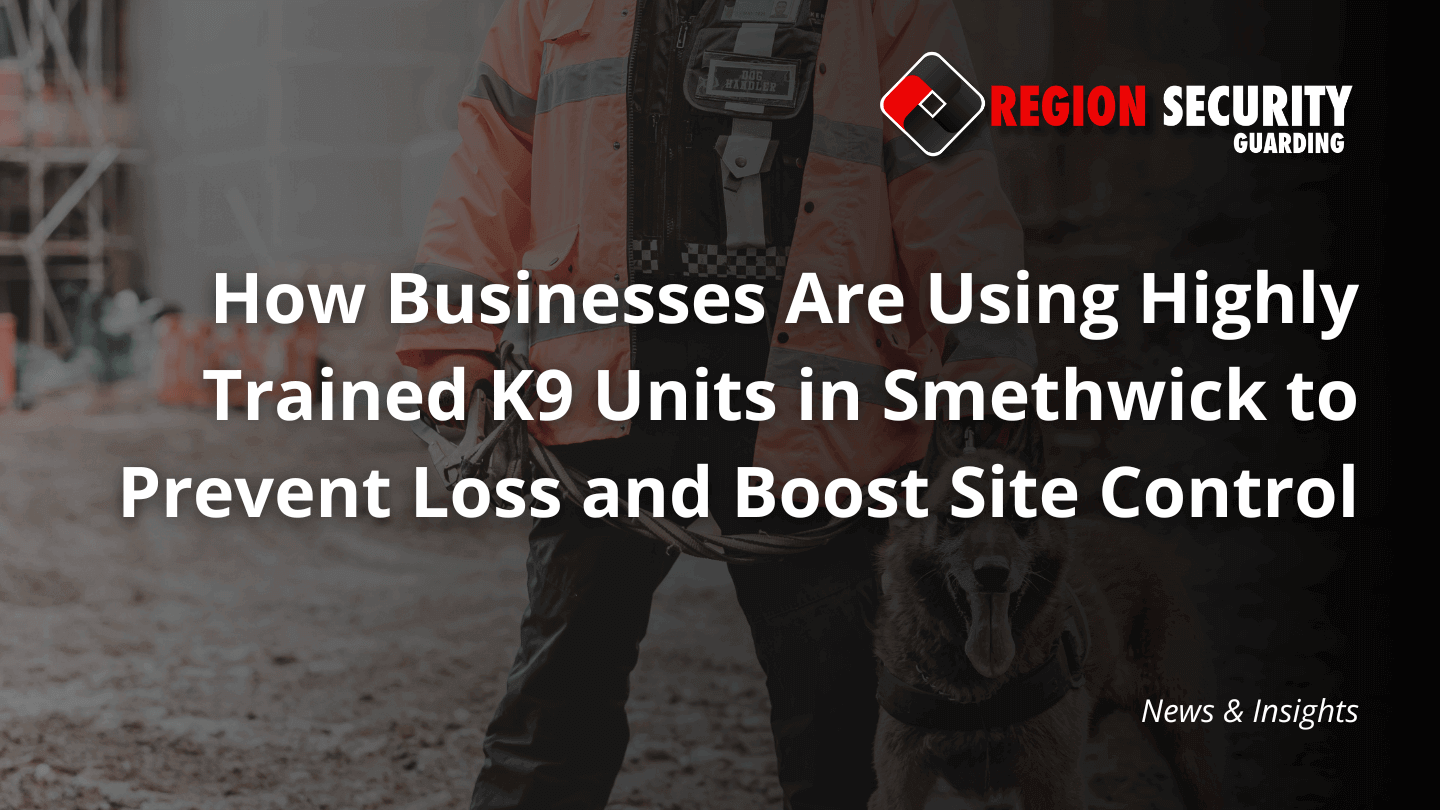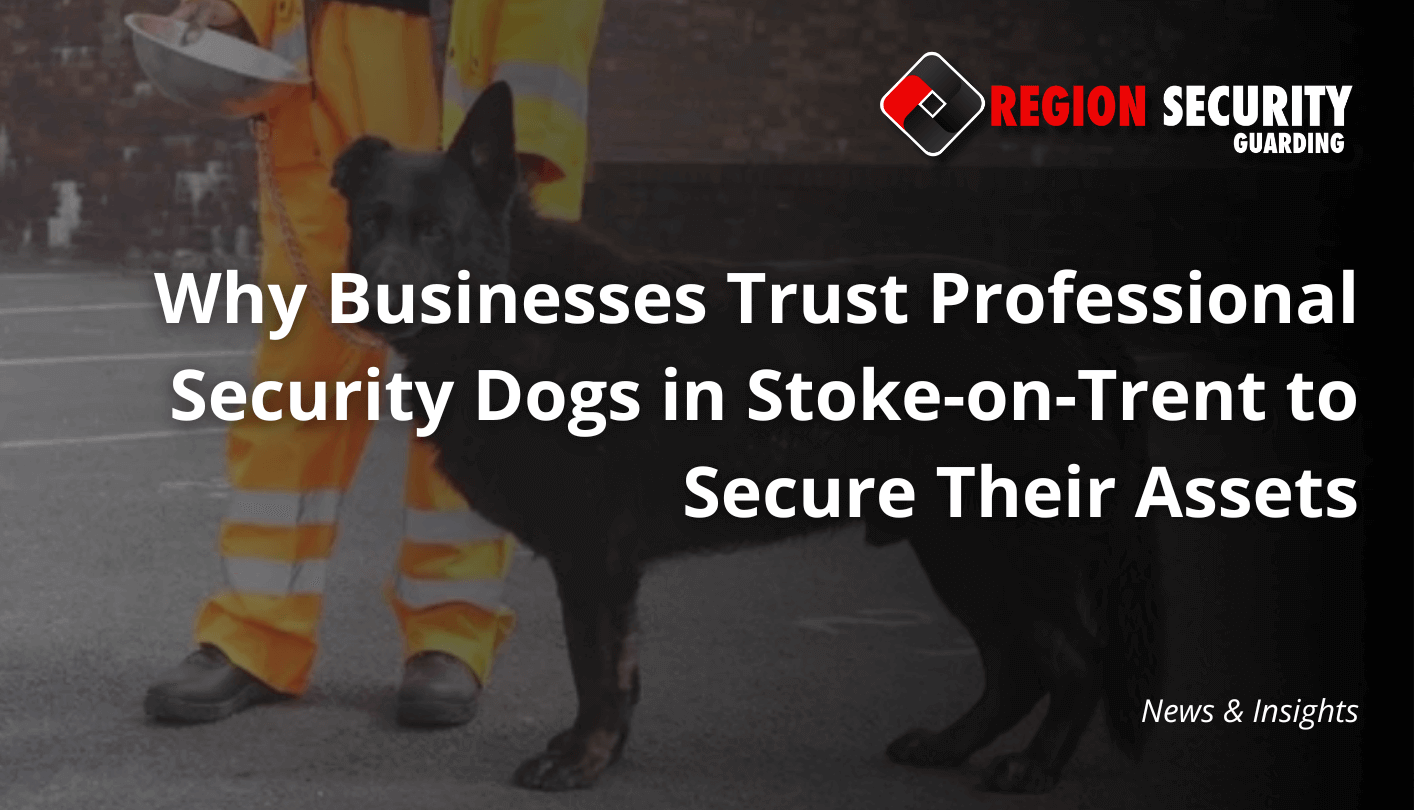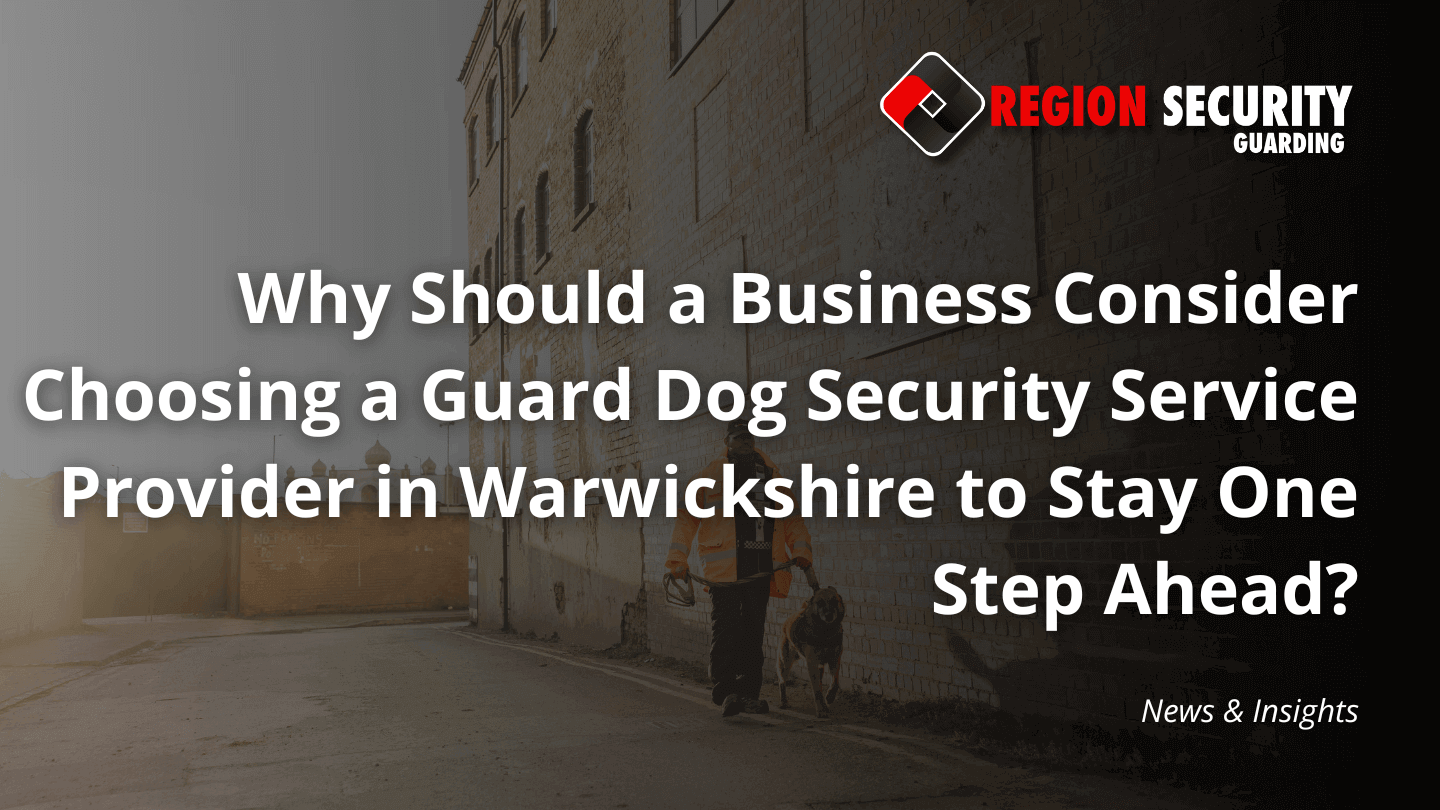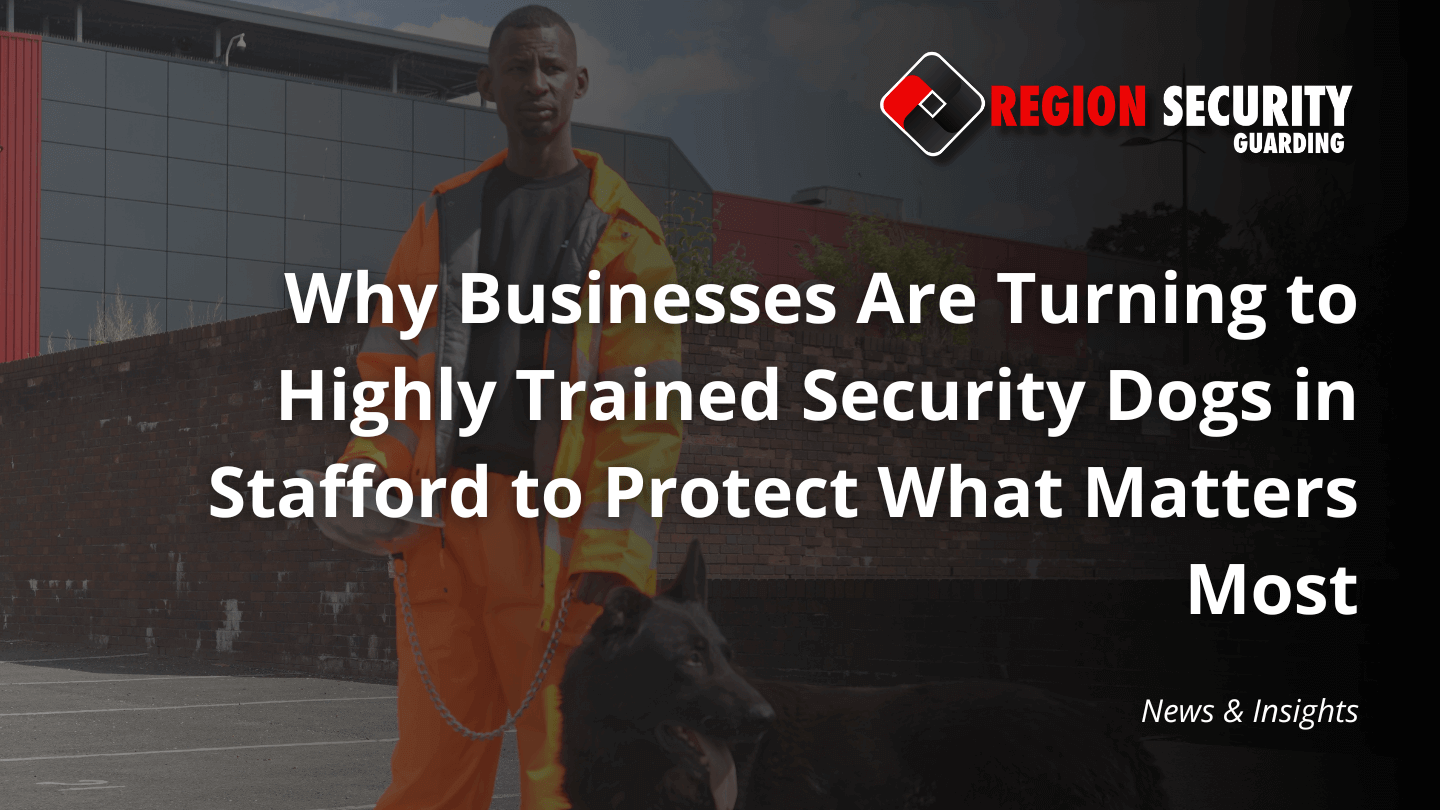According to The Grocer, the UK experienced over 5,000 cases of freight crime last year, a stark reminder of the growing threats facing the logistics industry. Given these concerning figures, it’s no surprise that many businesses are prioritising security by hiring professional logistics security guards to protect their operations.
But what is logistics security, and what do security guards in this field do? In this article, we’ll delve into the key threats to logistics, the roles and responsibilities of logistics security guards, and the vital importance of securing the logistics industry.
Table of Contents

What Are the Security Risks in Logistics?
Before we explore the question of “what is logistics security,” it’s essential to understand the security threats businesses in the logistics industry often face. One of the most significant risks is theft.
Lorries, frequently used to transport goods between businesses or manufacturers, are common targets for criminals. Thieves may attempt to break into these vehicles to steal valuable cargo, with the intent of selling it for profit.
Another major threat is vandalism or damage to equipment. Goods and valuable items are often stored in temporary warehouses or transport lorries, making these locations vulnerable. Criminals may target warehouses or lorries, vandalising or damaging them while trying to access the goods inside.
What is Logistics Security?
Various goods move through well-established routine supply chains every day from business to business, whether that be from manufacturer to supplier or supplier to retailer these goods remain vulnerable to threats such as theft, vandalism, and general damage. In essence, logistics security is the protection and tracking of these important goods whether that being when they’re in transit or stored temporarily in warehouses.
There are a variety of methods you or a security company can ensure full protection of your goods. We have explored these in more detail.
Security Guards
A key security measure often used in logistics is the deployment of professional security guards. Logistics security officers are responsible for protecting both the business and its valuable assets. Their presence alone provides a strong deterrent to criminals, and through their regular duties – such as patrolling, monitoring surveillance systems, and maintaining a constant watch – they help prevent potential threats and ensure the safety of the premises.
Remote Monitoring
Remote monitoring is a vital component of logistics security, offering a cost-effective way to protect cargo. Security professionals remotely monitor alarm systems and CCTV feeds, providing constant surveillance. If an alarm is triggered or suspicious activity is detected, the security team can respond immediately, preventing intruders from accessing your valuable vehicles or goods.
Moreover, the presence of clearly visible CCTV cameras alone can act as a deterrent, often stopping crime before it happens. In fact, research by the UK College of Policing found that crime rates dropped by 13% in areas with active CCTV compared to those without, demonstrating its effectiveness in preventing criminal activity.
Temporary Warehouse Security
Many security companies offer warehouse security as part of their logistics security packages. Since logistics vehicles and goods are frequently stored temporarily in warehouses, it’s essential to protect this stage of the operation. This can be done through static security, where guards are stationed at key points, or mobile patrols, where officers regularly patrol the premises to detect and address potential threats. Both methods ensure the safety of valuable assets during this critical phase of the logistics process.
Systems Control
Many logistics security providers understand the importance of maintaining the right storage environment, especially for perishable or high-value goods, such as frozen meat, which required continuous refrigeration during transport.
To meet these needs, system control is commonly included in logistics security packages. This involves security professionals monitoring critical factors like temperature, humidity, and lighting to ensure storage units remain within the necessary conditions. By maintaining these parameters, security teams help protect sensitive goods and ensure their safe storage and transfer.
Lock and Key Security
Even basic security measures can make a significant difference in preventing theft. For instance, a sturdy locked cargo container secured with a heavy-duty padlock can be the key factor in keeping cargo safe.
Many thieves may not have the tools or expertise to bypass such locks. Even if they do manage to break in, extra layers of security, like additional locks or reinforced barriers, can buy security guards more time to respond. This delay increases the chances of stopping the crime before it escalates further.
What is a Logistics Security Officer?
A logistics security officer is essentially a static security guard with a focus on protecting logistics operations. Their main role is to deter criminal activity and ensure the safety of businesses and their valuable assets. By maintaining a visible presence, logistics security guards help prevent theft, vandalism, and other threats, providing crucial protection for goods in transit or storage.
What Does a Logistic Security Guard Do?
As mentioned earlier, the primary role of a logistics security guard is to provide businesses and their goods with an extra layer of protection. However, their responsibilities go beyond this core duty. Some of their key tasks include:
- Preventing and stopping any criminal activity on-site.
- Conducting regular patrols, both on foot and by vehicle, around logistics sites or warehouses.
- Establishing a strong security presence to deter potential criminals.
- Using CCTV monitoring to address blind spots in security coverage.
- Offering excellent customer service when interacting with employees or visitors.
- Ensuring that all visitors to the logistics site have a legitimate reason for being there.
- Apprehending criminals caught on the premises.
Why is Logistic Security Important?
Logistics security provides businesses with numerous key advantages. Here, we’ve outlined these benefits in more detail.
Prevention of Goods Theft
The theft of goods remains a significant risk for logistics operations. Opportunistic thieves can steal cargo from trucks or vans, either by force or quietly, often without the driver noticing. This underscores the importance of closely tracking all logistics to minimise the risk of theft.
Personnel Protection
A concerning aspect of logistics-related crime is the potential for delivery drivers to be intimidated or harmed by thieves attempting to steal the company vehicle or its cargo. However, vehicles clearly marked as being protected by security can help prevent such incidents. Thieves are less likely to target a vehicle that appears well-secured, reducing the risk of theft and protecting the driver from harm.
Protection of Company Vehicles
Hijacking and theft of company vehicles are major threats in the logistics industry, largely due to the high value of heavy goods vehicles. However, vehicles marked with visible security and GPS tracking can help deter thieves. The knowledge that the vehicle is being monitored and protected may cause criminals to reconsider, significantly lowering the risk of theft.

Why is Security Important in Transport Logistics?
Security is vital in transport logistics, especially when goods or valuables are being transported in transit lorries. During transit, these shipments become more susceptible to security threats, such as theft. Criminals often target transit lorries because they carry valuable cargo. To prevent such attacks, strong security measures, including the presence of security guards, are essential. Security personnel can effectively deter potential thieves simply by maintaining a visible presence, reducing the likelihood of theft and ensuring the safety of the goods.
How Can You Acquire Logistics Security?
The best way to secure logistics protection for your business is by contacting a reputable security company. When reaching out, it’s important to provide detailed information, such as the number of guards required and the duration of the security services.
At Region Security Guarding, we offer professional security solutions tailored for logistics businesses. If you’re interested in learning more about how we can support your logistics security needs, follow the simple steps outlined below to get started.
1. Contact Us
To help us meet your exact security needs, please provide your requirements by requesting a free quote on our website, calling us at 0330 912 2033, or emailing us at info@regionsecurityguarding.co.uk.
The more detailed and specific you are about your security needs, the quicker and more effectively we can offer you the right logistics security solution.
2. Receive a Free Quote
Once you have gotten in contact with us, and provided our team with your security requirements, we get to work with creating your free quote. We aim to provide you with a detailed, clear quote to your specific needs as quickly as possible.
3. Get Protected
Once the quote and service details are confirmed, we will match your business with the right security professionals to ensure the job is handled effectively.
4. You’re Secure
Congratulations! With security coverage from Region Security Guarding in place, you can focus on your business’s day-to-day operations, confident that your logistics are secure and well-protected.
Business Security You Can Rely On
Trusted by leading businesses nationwide for reliable, 24/7 protection.
or call 0330 912 2033

We have used Region security for quite a while now. Top notch service, great guards and helpful staff. We love our guards and the team for all of their help / work. No need to try the other companies at all."
Andy Yeomans - Jones Skips Ltd
Great company, professional services, friendly guards and helpful at times when required."
Rob Pell - Site Manager
A professional and reliable service. Always easy to contact and has never let us down with cover. No hesitation in recommending and competitively priced also. After using an unreliable costly company for several years it is a pleasure to do business with Region Security"
Jane Meier - Manager
Region Security were very helpful in providing security for our building. We had overnight security for around 4 months. The guards themselves were professional, easy to reach and adapted very well to our specific needs. Would definitely recommend Region for security needs.
Lambert Smith Hampton
Great service. Reliable and professional and our lovely security guard Hussein was so helpful, friendly but assertive with patients when needed. He quickly became a part of our team and we would love to keep him! Will definitely use this company again
East Trees Health Centre
Fantastic Service from start to finish with helpful, polite accommodating staff, we have used Region Security a few times now and always been happy with what they provide.
Leah Ramsden - Manager
So, What is Logistics Security?
In summary, logistics security encompasses the various measures businesses implement to protect their goods during transit. The most common methods include security personnel and remote monitoring tools, such as CCTV cameras.
To stay updated on the latest in security, visit our news and insights page, where you’ll find informative articles on topics like What is Gatehouse Security? and What is Car Park Security?




